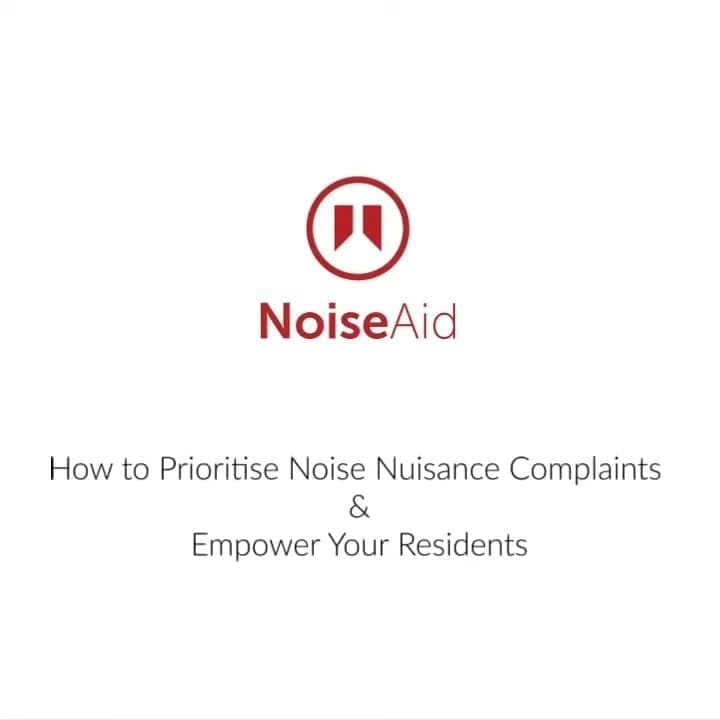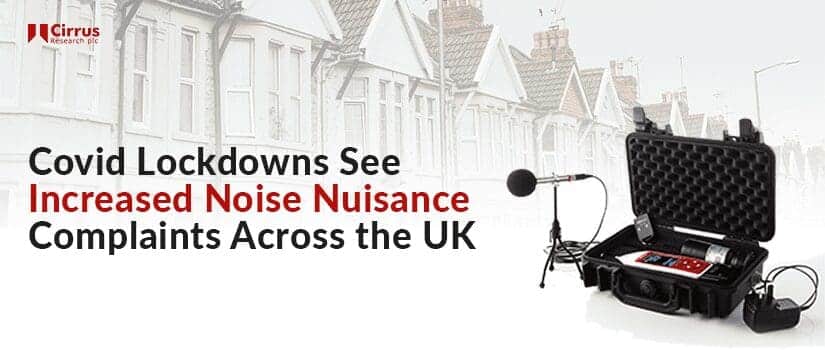According to new local government data, noise nuisance complaints and noisy neighbour disturbances have soared in the last 18 months, as most of the country spent more time indoors during the Covid-19 national lockdowns.
Freedom of Information Requests made by Churchill Home Insurance discovered that 368,924 noise complaints were made to local authorities between April 2020 and March 2021. This was an increase of almost 30% on the previous year, with nearly 90% of all UK councils reporting a rise in the number of cases they were investigating.
Six of the top 10 worst-affected UK local authorities were in London, with Newham (16,300), Islington (15,900) and the Royal Borough of Kensington and Chelsea (15,500) making up the list. However, it isn’t just London that saw an increase. In the West Midlands, Dudley topped the list with 26,000 complaints; authorities in Liverpool, Nottingham, Basingstoke, Dorset, Essex and Cambridgeshire also reported sharp rises in the number of complaints made. One of the other main takeaways from the research is that loud music was the cause of most of the complaints across the whole country.
This latest increase sees a reversal in the downward trend reported before 2020/2021. The Chartered Institute of Environmental Health’s noise survey for 2019/2020 highlighted that there had been an almost 12% reduction in the number of complaints made from the previous 12-month period, with a total of 131,645 instances recorded by the 117 local authorities that took part in the survey (CIEH 2021). However, a common theme is that London continues to be the hotspot for England’s nuisance noise, with an average of 189 complaints made per 100,000 people, compared to the next highest of 64 per 100,000 in Yorkshire.
The 2020/2021 CIEH noise survey is currently ongoing, supported by Cirrus Research plc, the results of which will be published and shared directly with Public Health England in early 2022. Those with responsibility for investigating noise nuisance are encouraged to get involved in the survey, as the data it gathers offers a valuable insight into environmental noise pollution, which both the World Health Organisation and the UK’s Chief Medical Officer describe as the second biggest environmental cause of health problems.
Chief Executive Officer of Cirrus Research, Daren Wallis, said: “Neighbourhood and community noise is one of the biggest areas of focus for us at Cirrus Research as the long-lasting physical and mental health implications it can have are deeply concerning. We’ve been working with local authorities and environmental health officers for more than 10 years, supplying intuitive and easy-to-use equipment to make the investigation and resolution of noise nuisance complaints effortless.
“We have a long-standing history of researching noise, its effects, and how we can innovate solutions to make it easier to safeguard against it. We are incredibly proud to be supporting the CIEH’s noise survey and we hope that by doing so, we can help raise awareness of noise and its effects.”
Are there lasting implications from lockdown restrictions?
Separate data also suggests that the UK lockdowns have had a lasting impact on our sensitivity to noise nuisance, as people told researchers that each wave of Coronavirus restrictions has made them more sensitive to noise. Just over 30% of respondents told researchers that noise had or continued to negatively impact their mental health and well-being, which is quickly becoming one of the most common symptoms of exposure to excessive noise levels, as discussed in a previous article.
Speaking to Sky News, Steven Williams, head of Churchill Home Insurance, said: “The pandemic has seen us confined to our homes which means we’ve probably all become very aware of noises around us.
“As we go into more of a ‘new normal’, many of us will carry on working from home, at least part of the time, so noisy neighbours will continue to be really disruptive.
“It may be the case that neighbours don’t realise they are being noisy, so the first step should always be speaking to them and explaining the problem.
“If that doesn’t work and they carry on, then keep a record of the type of noise and time of day, and speak to your local council about raising a potential noise complaint.”
Chair of the Local Government Association’s Stronger and Safer Communities Board, Councillor Nesil Caliskan, said: “With many people living in high density, urban areas, complaints about noise nuisance are common.
“Councils are doing what they can to respond to noise complaints in communities and to tackle persistent behaviour that makes peoples’ lives a misery”.
Local authority environmental health and anti-social behaviour teams already face an incredibly tough job dealing with noise nuisance complaints, often made more challenging by budgetary restrictions, limited resources and staffing levels. Paired with the sharp increase in the volume of complaints, those responsible for investigating and resolving noise nuisance complaints need all the assistance they can get to ensure people are protected against the disruption and disturbance caused by inconsiderate neighbours.
What solutions are available to help local authorities and housing associations resolve noise nuisance complaints amidst rising cases?
First launched in 2011, the Trojan noise nuisance recorder from Cirrus Research has been instrumental in changing how local authorities and housing associations investigate and resolve noise nuisance complaints. Using the power of Cirrus Research’s industry-leading Optimus sound level meter technology, the Trojan has come to be trusted by more than 70 local authorities and housing associations across the UK, providing accurate and reliable data and invaluable insight into individual cases.
With intuitive controls and best-in-class features, the Trojan makes noise nuisance investigations effortless. Once the unit is plugged in, residents need only press the record button on their remote control to capture instances of noise, and the Trojan does the rest:
- Captures high-quality audio recordings, allowing for greater insight into the source
- Provides accurate and reliable noise data on every parameter required for the successful investigation and resolution of noise nuisance complaints
- Can run on battery power in the event of a mains outage to protect the integrity and consistency of the measurements its capturing
- Provides discretion for complainants and peace of mind for investigators, as Trojan comes in a discreet, durable and tamperproof black case
Discover the Trojan2 noise nuisance recorder
Discover the TrojanLITE noise nuisance recorder

With every Trojan instrument, users also get free access to Cirrus Research’s NoiseAid web app, which acts as an online diary that residents can use to log instances of nuisance noise. Users can log in to their organisation-specific account to see the results of the data that has been captured, allowing for more intelligent and more effective resource deployment.
- Prioritise where your noise nuisance measurement equipment can be used effectively
- Give your users a new, digital noise log that they can use wherever they are
- FREE for all Trojan customers with FREE updates and upgrades
- No limits on the number of users that can be created
- Add as many team members as you need to manage cases
- View noise event logs and notes stored by users
- Create reports to allow for easy follow up
- Store PDF records or CSV files in case management systems
For more information about how Cirrus Research can help you manage your noise nuisance workload, please contact a member of our team.
Sources
Hymas, C (2021) ‘Noisy neighbour complaints rose by 28pc during pandemic, reveals council data‘, The Telegraph, 2nd September: https://www.telegraph.co.uk/news/2021/09/02/noisy-neighbour-complaints-rose-28pc-pandemic-reveals-council/
Sky News (2021) ‘Local councils received 1,000 complaints a day about noisy neighbours during lockdowns’, 2nd September: https://news.sky.com/story/local-councils-received-1-000-complaints-a-day-about-noisy-neighbours-during-lockdowns-12397163
Chartered Institute of Environmental Health (2021) CIEH Noise Survey 2019/20 Report on Findings – England: https://www.cieh.org/media/4898/cieh-noise-survey-findings-2019_20.pdf



